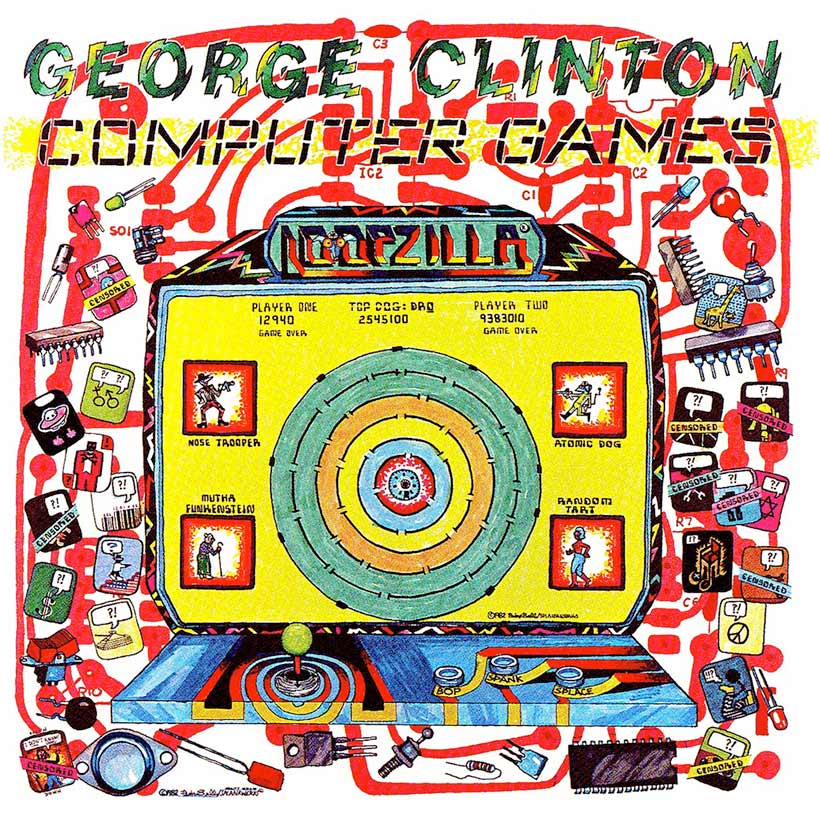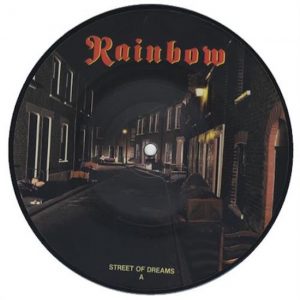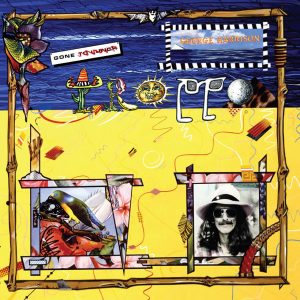Could the old funkateer still deliver the goods? Parliament-Funkadelic, the 70s masterfunkers, ran out of road as the 80s arrived, caught in a traffic jam of contractual hassles, personnel problems, personal problems, and overstretch. Parliament, Parlet, Funkadelic, Brides Of Funkenstein, Bootsy, Sweat Band, Philippe Wynne, the aborted project with showman-guitarist Roger Troutman… there was only so much Uncle Jam could cope with. And music was moving fast, with rap and electro trouncing funk as the kids’ choice, while even mainstream dance music was growing increasingly electronic. It was time to regroup, but how? George Clinton, leader of P-Funk, knew what to do. Go fishing. It gave him time to rewire his frazzled brain. Funk was addictive, as were the substances that went with it, and so was a new entertainment phenomenon: computer games. George tried them and got hooked too. If only he could channel his new habit into something productive… Hmm, those cute little synthesized tunes… what if that could be tied to super-heavy phunk? So his debut solo album, Computer Games, was born.
Listen to George Clinton’s Computer Games on Apple Music and Spotify.
P-Funk never feared synthesizers or electronics. From the early 70s, Sly & The Family Stone, from whom Parliament-Funkadelic had drawn inspiration, had included a drum machine in its armory. The arrival of former Ohio Players’ keyboard boffin Junie Morrison in Funkadelic’s line-up, in 1977, delivered extra synth power. In 1982, Morrison and Clinton started figuring out a fresh fusion of P-Funk and electronics. The results were funkscinating.
Returning as Parliament or Funkadelic was contractually impossible, so Clinton signed to Capitol as a solo artist. The first fruit was the single “Loopzilla,” released in September 1982. While it was clearly P-Funk, it was also electronica buffed to a blinding finish like a gleaming robot. He had evidently been tuned into contemporary radio: there were extemporizations of antique Motown hits on it, used like samples. Clinton, a hunter, had been captured by the (computer) game. He referred to Afrika Bambaataa’s “Planet Rock” in “Loopzilla,” and added, it will “drive you nuts”: correct. “Loopzilla” was as repetitive as a reversing truck’s warning message, and utterly danceable. It was also a bigger club hit than its modest chart status suggested.
The next single was “Atomic Dog.” This time the approach was slower, heavier, even more electro. Its tale of life as a mutt – or a human with tail-draggin’ tendencies – was potty, hilarious, and stupidly catchy. Too wack for the pop chart, it made No. 1 in the R&B list. Both 45s featured on Computer Games, unleashed on an unsuspecting world on November 5, 1982 – appropriately, Fireworks Day in the UK.
Everything on Computer Games was different and modern – yet the same. This was P-Funk updated. Long-standing fans would recognize the sleeve, designed by Pedro Bell. A lot of the regular crew were present. But the attitude was different. The mad humor still rattled throughout, but it was time to work, as the opening track, “Get Dressed,” set backstage where Clinton fretted about not messing up amid gags galore, made clear. “Man’s Best Friend” could have come from any of the later Funkadelic records, except they didn’t make many singing the praises of Rover. It segued into “Loopzilla,” followed by “Pot Sharing Tots.” A swing ballad in which one toddler romances the other in an innocent but scatological way, “Tots” sticks in your head like a misthrown dart.
The title track opens with mock classical lines played on the thinnest synthesizer setting imaginable, as if from a ZX Spectrum game; then Funkadelic spank kicks in, like something from Uncle Jam Wants You – only more brittle, like Clinton pinching Prince’s Minneapolis sound. Oh, and he also channels Dracula. Go figure. Time for another smash, so “Atomic Dog” swaggers in, tail wagging and leg-shagging. Calming down, it’s followed by a mock-reggae ballad, “Free Alterations,” in which Mr. Funk, cast as a tailor, promises to dress you in love. It’s not much of a song, or, if it is, it’s hidden in layers of vocals and a groove a like Donald Fagen’s “IGY” – released a month earlier – only more anarchic. The closing track, “One Fun At A Time,” is a memo to self that excess is not best served to excess. In an album full of it.
So the Old Funky General could still get down with da kids, despite being in his 40s. It’s like he was warning the hip-hoppers to come (who would bite “Atomic Dog” to the bone with samples – just check Snoop Dogg’s “What’s My Name?”), young pretenders such as Prince, and numerous electro-poppers that he still had the funk to spare, whatever the technology. Computer Games is brilliant at its best, inventive at its worst. Clinton knew he had to come back strong this time, and he didn’t let a funky soul down.




